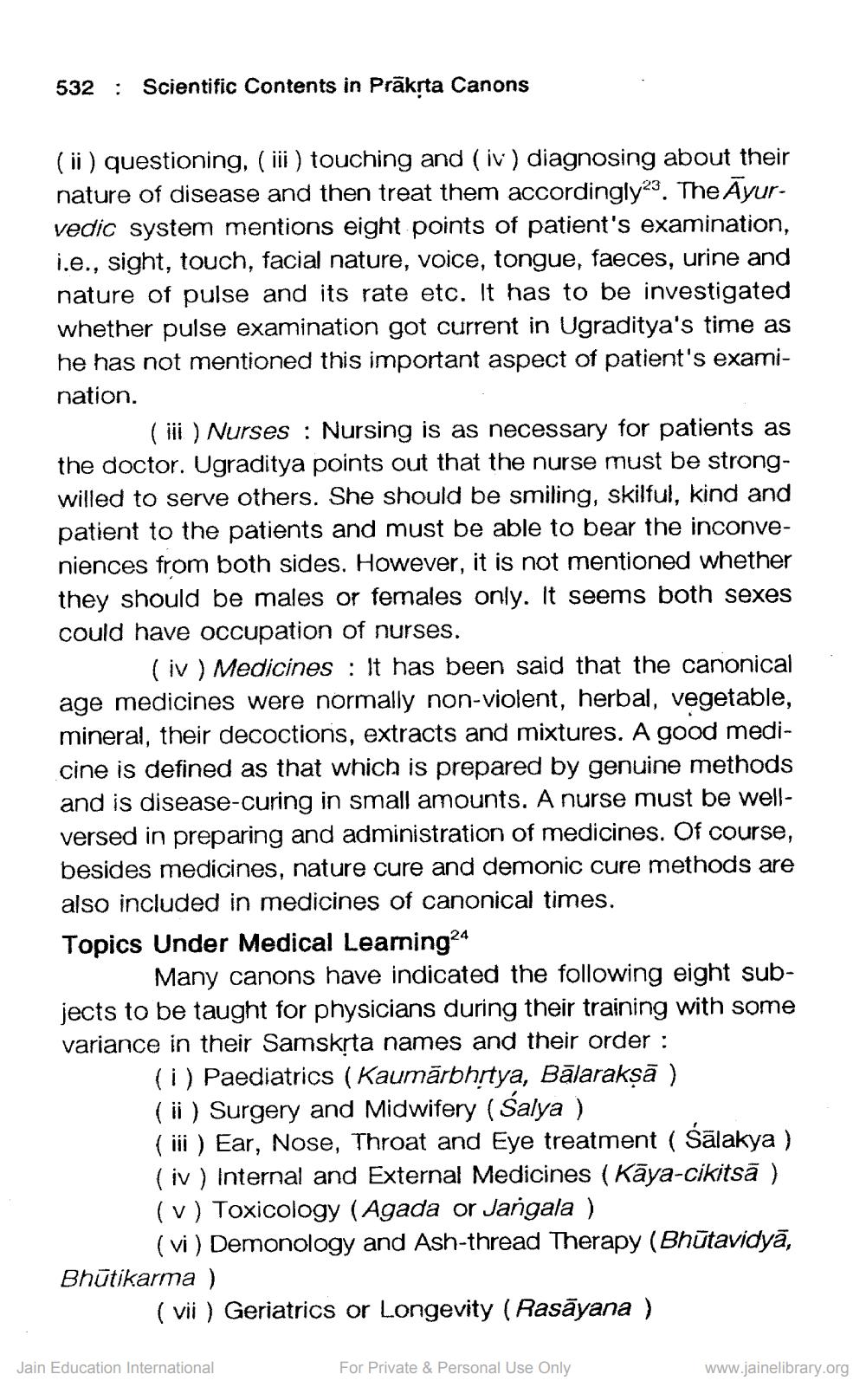________________
532 : Scientific Contents in Prākļta Canons
(ii) questioning, (iii) touching and (iv) diagnosing about their nature of disease and then treat them accordingly23. The Āyurvedic system mentions eight points of patient's examination, i.e., sight, touch, facial nature, voice, tongue, faeces, urine and nature of pulse and its rate etc. It has to be investigated whether pulse examination got current in Ugraditya's time as he has not mentioned this important aspect of patient's examination.
( ili ) Nurses : Nursing is as necessary for patients as the doctor. Ugraditya points out that the nurse must be strongwilled to serve others. She should be smiling, skilful, kind and patient to the patients and must be able to bear the inconveniences from both sides. However, it is not mentioned whether they should be males or females only. It seems both sexes could have occupation of nurses.
(iv) Medicines : It has been said that the canonical age medicines were normally non-violent, herbal, vegetable, mineral, their decoctions, extracts and mixtures. A good medicine is defined as that which is prepared by genuine methods and is disease-curing in small amounts. A nurse must be wellversed in preparing and administration of medicines. Of course, besides medicines, nature cure and demonic cure methods are also included in medicines of canonical times. Topics Under Medical Learning24
Many canons have indicated the following eight subjects to be taught for physicians during their training with some variance in their Samskrta names and their order :
(i) Paediatrics (Kaumārbhrtya, Bālaraksā ) (ii) Surgery and Midwifery (Salya ) (iii) Ear, Nose, Throat and Eye treatment ( Śālakya ) (iv) Internal and External Medicines (Kāya-cikitsā ) (v) Toxicology (Agada or Jangala )
(vi) Demonology and Ash-thread Therapy (Bhutavidyā, Bhūtikarma )
(vii) Geriatrics or Longevity ( Rasāyana )
Jain Education International
For Private & Personal Use Only
www.jainelibrary.org




